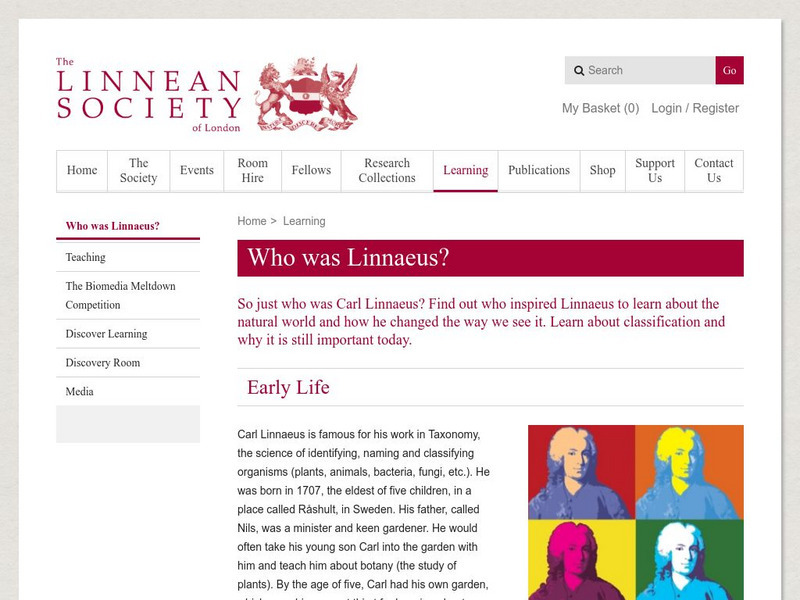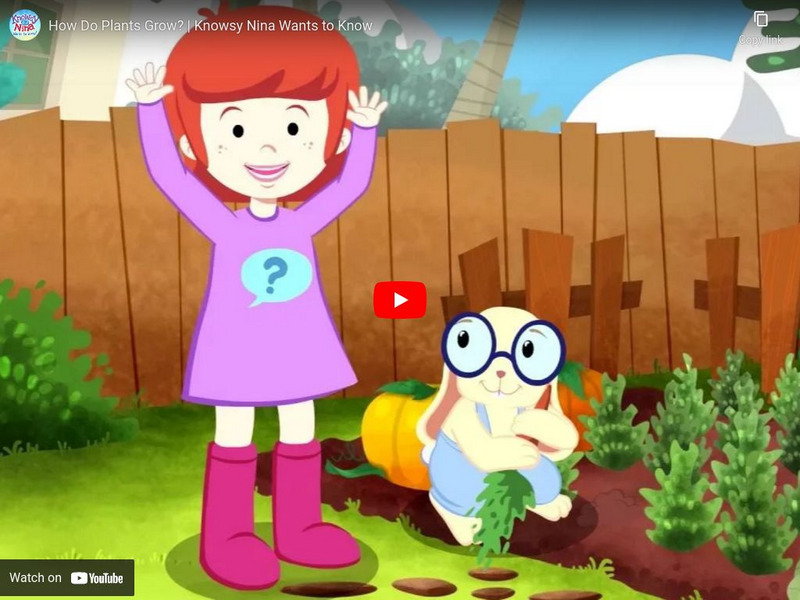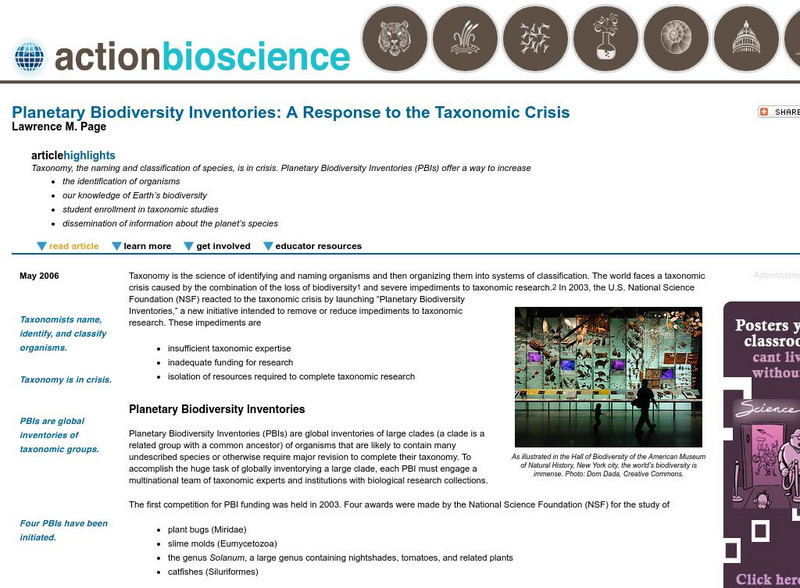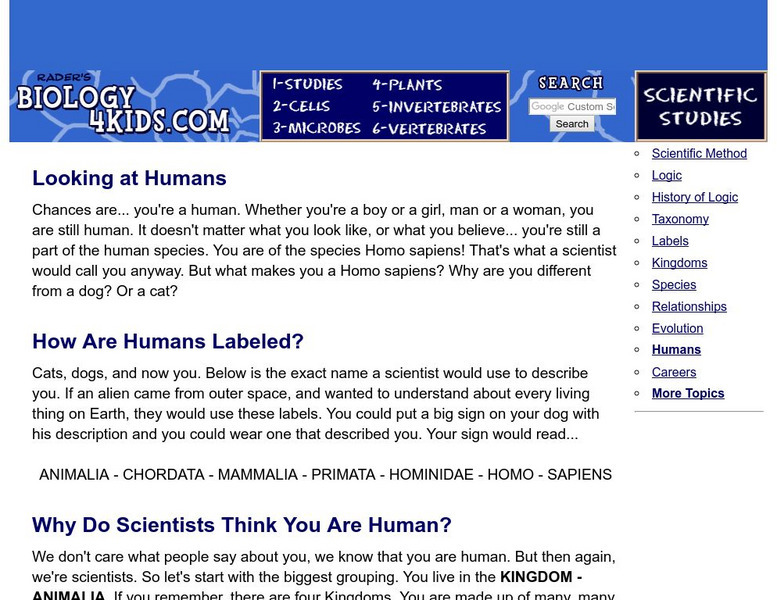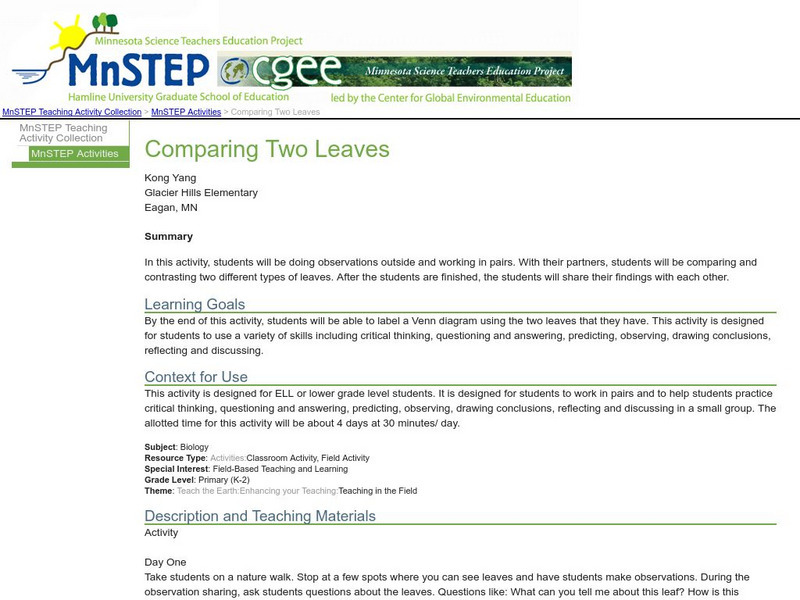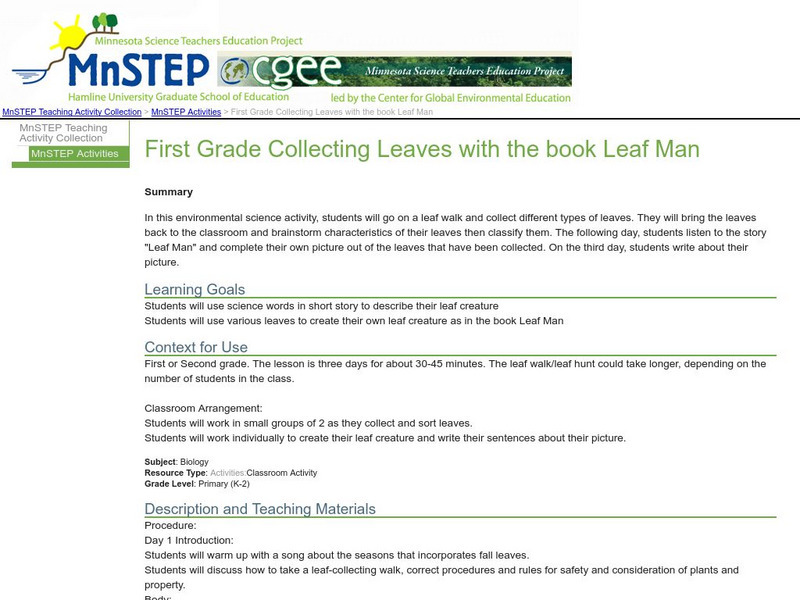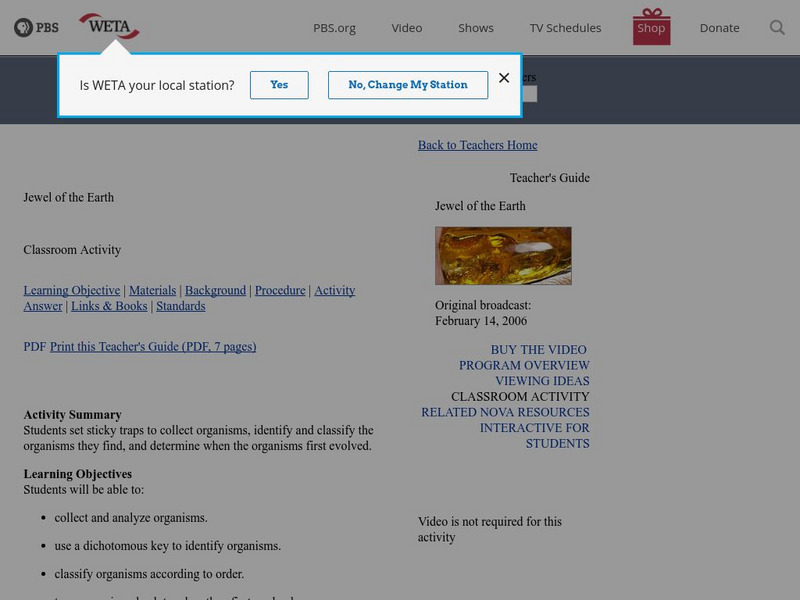Hi, what do you want to do?
Other
Linnean Society: Carl Linnaeus
This resource presents a biography of Carl Linnaeus that covers some of his most important contributions to science.
Soft Schools
Soft Schools: Classification of Organisms Quiz
Take an interactive quiz over the classification of living things. After completing the quiz, check your score, and then revisit any incorrect question for further review.
Soft Schools
Soft Schools: Classification Quiz
Take this interactive, multiple-choice quiz over classification of organisms, then review your score and any missed questions at the end.
Other
Siemens Science Day: Life Science: The Key to It All
In this hands-on science activity, students will create their own unique creatures as well as dichotomous keys so that classmates can identify the creature.
Curated Video
How Do Plants Grow? | Knowsy Nina Wants to Know
Knowsy Nina discovers what food plants need in order to grow in this episode! [5:00]
BiologyWise
Biology Wise: Classification of Bacteria
Explains how bacteria are classified by gram staining for medical purposes, and how they are classified by scientists based on Bergy's Manual of Systematic Classification. Also presents a list of hundreds of bacteria organized into their...
BiologyWise
Biology Wise: Common Earthworm Classification and Characteristics
The taxonomic classification of the earthworm is described and its anatomical characteristics.
BiologyWise
Biology Wise: Animal Kingdom Classification
Describes the main phyla in the kingdom Animalia.
American Institute of Biological Sciences
Action Bioscience: Planetary Biodiversity Inventories: Taxonomic Crisis
For reasons such as lack of funding and decreased biodiversity the science of taxonomy is dwindling but Planetary Biodiversity Inventories might help according to this article.
Alabama Learning Exchange
Alex: Taxonomy: The Importance of Classifying
This is a technology-based, hands-on Biology lesson used to introduce the topic of Taxonomy and the importance of classifying. Learners will listen to a podcast about classifying every living thing on Earth. Students will then give some...
Alabama Learning Exchange
Alex: Botany Scavenger Hunt Where's the Ginkgo?
Students use a science nature journal to log in plants native to Alabama. They sketch pictures of leaves, identify the special characteristics of the plant, and describe the environment where it was found. They also research special...
CK-12 Foundation
Ck 12: Life Science: 11.9 Organization of Living Things
Learn the system that scientists use to classify living things.
ArtsNow
Arts Now Learning: Classification of Animals: "Connect Your Animal Show" [Pdf]
Fifth graders learn about animal classification by reviewing the taxonomy system, then looking at pictures of animals as if they were scientists, acting out an animal's characteristics, then classifying their animal.
Biology Corner
Biology Corner: Cladogram Analysis
A lesson plan where students analyze a cladogram to understand a derived characteristics between a group of organisms. After analyzing the prepared cladogram, students create their own.
Biology 4 kids
Biology4 Kids: Looking at Humans
Find out about the human species, and why our physical characteristics set us apart form other species.
Famous Scientists
Famous Scientists: Ernst Mayr
Read about the life and work Ernst Mayr, one of 20th century's leading evolutionary biologists.
CK-12 Foundation
Ck 12: Biology: Plant Kingdom Study Guide
Explore the diversity and taxonomy of the plant kingdom.
Biology Corner
Biology Corner: Fingerprint Classification
A lesson where students practice classification by putting fingerprints into groups.
Science Education Resource Center at Carleton College
Serc: Comparing Two Leaves
Working in pairs, young scholars compare and contrast two different types of leaves through observations.
Science Education Resource Center at Carleton College
Serc: First Grade Collecting Leaves With the Book Leaf Man
In this environmental science activity, students go on a leaf walk and collect different types of leaves, and then brainstorm characteristics of their leaves then classify them.
Wikimedia
Wikipedia: Binomial Nomenclature
Wikipedia, an open-source encyclopedia, offers great information on the classification system used in Biology. Covers the benefits of the system, history, and general information on the whole system together.
PBS
Pbs Teachers: Jewel of the Earth
Collect and analyze organisms and use a dichotomous key to identify and classify the organisms. Research the evolutionary history of organisms.
Other
The Domains and Kingdoms of Life
This site is a description of the history behind the 5 Kingdom system suggested by Robert Whittaker. An extensive list of resources is included.





